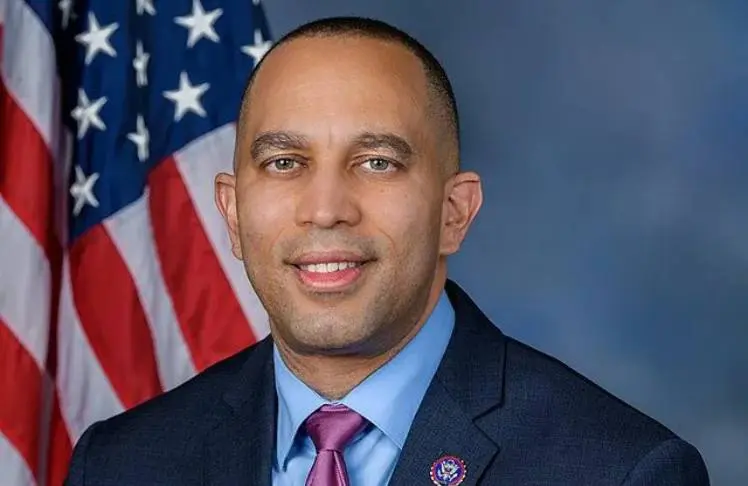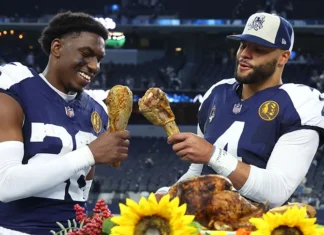
The significance of each congressional seat has been brought into sharp focus after an unprecedented vote on Tuesday, Oct. 3 saw California Republican Kevin McCarthy removed from the top leadership post as Speaker of the House.
Against this backdrop, the possibility of the Democrats gaining control of the House introduces the prospect of a historic shift: If we take action on Tuesday, Nov. 5, 2024, we will have, almost certainly, the first Black Speaker of the House in United States history.
Why a Black Speaker Matters
The Speaker of the House — the presiding officer of the House — is elected by whichever party has the most voting members, and it’s a powerful role. After the vice-president, the speaker is second in line for the presidential succession. The speaker manages all business in the House of Representatives, including appointing committee members.
You likely know who Nancy Pelosi is because she was Speaker of the House from 2007 to 2011 and again from 2019 to 2023. How powerful was Pelosi? Without her, the Affordable Care Act, also known as Obamacare, likely would not have become law.
Hakeem Jeffries, who represents the diverse Eighth Congressional District in New York, an area that includes most of the larger parts of Brooklyn is serving his sixth term in Congress. Jeffries is the current leader of the Democratic Caucus and therefore is likely to become the Speaker if Democrats gain control of the House.
The current narrow margins in several swing districts that hold the balance of power in federal elections means the level of Black voter participation has even more impact. This should be a huge incentive for all of Black America to mobilize for massive voter participation.
The Cost of Voter Apathy
The devastating costs of voter apathy for African Americans are even more alarming when you realize that, according to the Cook’s Political Report’s Davis Waserman, only 82 of the 435 members of the House of Representatives’ races every two years are competitive across the country between Democrats and Republicans. That is just half of the swing districts in 1999.
That has led to a vast majority of primaries placing an outsize influence on any group of highly engaged and more-intense people who show up and vote. According to the Bipartisan Policy Center less than 1 in 5 eligible voters cast their ballots in party primaries. It means that a relatively small group of voters that do show up have a disproportionate impact on who goes to the influential U.S. Congress.
There is the issue of party registration in the 30 states where only registered party voters can vote in primaries. Alaska, California, Louisiana and Washington either don’t have primary elections in federal elections or changed them into non-partisan contests in which the top finishers make it to the November ballot.
In any case, Black voter indifference means a huge missed opportunity to affect primary election outcomes. We need to understand better how electoral policies actually work and take more responsibility to learn how to better use the system to protect our interests and advance concerns.
We must become smarter, more active voters. We must become more willing and able to recognize that many strategies and aspects of our lives and well-being are dependent on public policies that are influenced by how we strongly make our voices heard at the ballot box.
Countering Voter Suppression
We know that voter suppression and gerrymandering maps that dilute the power of Black voters are used to undermine our political influence. New York Times columnist Jamelle Boule reminds us that “various efforts to invalidate elections and create durable systems of minority rule in the states are possible only because of a constitutional structure that gives a considerable amount of power and sovereignty to subnational units of political authority.”
But despite those challenges, we must not be discouraged and take greater measures to incentivize our voters to get to the polls. They need to understand that their votes, in many situations, do count — especially if they participate — because the margins that determine who will be in control are often very close.
Moreover, there has also been a significant shift of Black voters from inner cities to the suburbs where they often hold the balance of power between Democrats and Republicans. This increasingly significant Black suburban vote helped several Democratic candidates win, including the presidency because of the results in several states including Arizona, Wisconsin, Michigan, Georgia and Pennsylvania where the margins of victory were razor thin. Biden won the popular vote by six million, but he would have lost if not for narrow victories in a small number of swing states.
The Consequences of Not Showing Up at the Polls
Thirteen months from now, Americans will go to the polls to elect the next president of the United States. Some of us will also vote in Senate races. And no matter where you live, you’ll vote for who will represent you for two years in Congress.
A negative outcome of the upcoming national elections in 2024 goes beyond a Black man — Hakeem Jeffries — not becoming Speaker of the House. Not turning out the vote could lead to immense harm for you, your family, and your community. If the next president is Donald J. Trump and Republicans gain control the House and Senate, we would likely see the country move down a perilous path that would create tremendous danger for Black people.
The vote was gained for Black people only after much pain, suffering and sacrifice by our forebears and sympathetic non-Black people. Our vote is still continually being compromised as shown in the 2013 Shelby County v. Holder Supreme Court decision by a 5 to 4 count (Justice Clarence Thomas cast the decisive concurring vote) that reversed the most aggressive and effective rule for federal protection of voting rights since Reconstruction.
We must organize to protect against any further diminution of our vital right to votet. It is a sacred duty and obligation. We must mobilize to turn out in record numbers and use this hard won right by showing up at the polls.

Donald M Suggs is the publisher and owner of The St. Louis American.
Local Media Foundation, a 501(c)(3) charitable trust that provides support for the Word In Black collaborative, does not endorse political candidates. Word In Black, however, invites and publishes opinion essays, including this one, from vital voices and opinion makers central to creating equity in Black communities.















